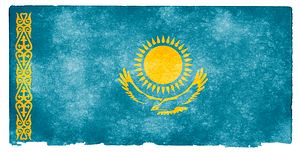It’s no secret that internet freedoms in Kazakhstan have taken a severe beating over the past few years. Much like the country’s political or press freedoms, Kazakhstanis’ ability to both access and share information over the past few years has been notably restricted.
Now, it appears Kazakhstanis’ online lives are about to become that much more constricted. As Eurasianet noted earlier this week, Astana plans to do away with anonymous commenting in Kazakhstan. According to Mikhail Komissarov, deputy head of Kazakhstan’s communications and information technology committee, users will be required to authenticate their identity via SMS before posting comments. That is, it appears Kazakhstan plans on linking online comments to individual phone numbers and, as such, to the individuals in question. It was, Komissarov noted, Kazakhstan’s latest efforts in an “information war.”
While there’s certainly an argument to be made for doing away with anonymous commenting — as anyone who’s used the internet will surely understand — Astana’s move is somewhat undercut by Kazakhstan’s recent history of online policing. To wit, not only has the country begun jailing individuals for both secession-related content and insults directed at Russian President Vladimir Putin, but, just over a year ago, Kazakhstan made international news for its attempts to work around encryption. As TechDirt reported in December 2015, Kazakhstan “has decided that it would be a downright nifty idea to break HTTPS and SSL, essentially launching a ‘man in the middle’ attack on every resident of the country.”
As such, it’s little surprise Kazakhstan’s internet freedom scores from Freedom House have progressively worsened over the past half-dozen years. (For full disclosure, I’ve worked with Freedom House in the past.) Indeed, after 2015 Kazakhstan was officially rated as “not free,” Freedom House’s worst demarcation, for its online freedoms, and currently sits between Sudan and Egypt in global rankings. And the current push to unmask anonymous commenters certainly won’t help matters — no matter how much Astana attempts to spin the move.

































